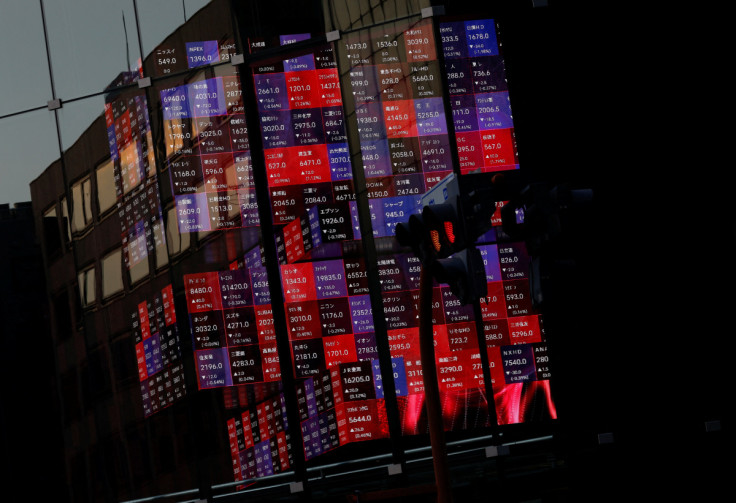Stocks rise as data tempers recession worries
Stocks rose on Thursday as recent economic data from around the world fed hopes that the global economy might not face as hard a landing as feared a few months ago, even as interest rates threaten to remain higher for longer than expected.

Stocks rose on Thursday as recent economic data from around the world fed hopes that the global economy might not face as hard a landing as feared a few months ago, even as interest rates threaten to remain higher for longer than expected.
France's CAC 40 hit a record, up 1.1% as investors bet on more demand for luxury goods from China as it comes out of its strict COVID-19 curbs.
Louis Vuitton owner LVMH, Europe's largest company by market value, was up 0.7%, while Kering and Pernod Ricard were among the biggest boosts to the pan-European STOXX 600.
London's FTSE 100 continued its recent run of record highs thanks to with a flurry of share buybacks from banks that lifted their shares.
MSCI's all-country world price index rose 0.2%, set for a gain of more than 1% this week and on track to recover last week's losses.
Data showing U.S. retail sales increased the most in nearly two years in January, as well as cooler inflation in the United States, the euro zone and the UK, gave investors more confidence in the economic outlook.
"What is becoming clearer... is that the U.S. economy in particular has been very resilient and so as a result, the market is sort of pricing out this risk of a hard landing at least in the short term," said Julien Lafargue, chief market strategist at Barclays Private Bank.
"People are feeling a bit better about getting invested. It is positioning that is driving the market, because if you have people who are positioned more for recession and the data... is telling you well, it's not going to be as bad as you think, that forces people into the market."
Risk assets generally got a boost on Thursday.
Bitcoin has been on a tear, hitting a six-month high of $24,895, partly thanks to news of big investors taking stakes in crypto bank Silvergate.
U.S. stock futures, however, pointed to a lower open on Wall Street as investors braced for monthly producer prices data. Producer prices are seen having climbed by 0.4% in January on a month-on-month basis, following a 0.4% fall in the previous month.
The greenback cut some losses, but was still below six-week highs against the yen, yuan and kiwi.
Benchmark 10-year Treasury yields, which rise when bond prices fall, hit their highest since the start of the year earlier in the day, but subsequently retreated and were last unchanged on the day at 3.805%. [US/]
Only a couple of weeks ago U.S. interest rate futures implied the Fed funds rate, currently fixed between 4.5% and 4.75%, would drop below 4.5% by year's end. They now flag rates above 5% through the year.
Two-year Treasury yields, which also track short-term interest rate expectations, hit their highest since November at 4.703% overnight.
Across the Atlantic, European Central Bank board member Fabio Panetta said the central bank should start raising interest rates in smaller increments and avoid committing to future moves. The ECB raised rates by 50 bps this month.
Other central bankers on the radar for the day are Bank of England chief economist Huw Pill, Bank of Canada Governor Tiff Macklem and Fed officials James Bullard and Loretta Mester.
DOLLAR ASCENDANT
While equities keep climbing, the repricing of the interest rate outlook is putting the brakes on a couple of months of selling of the dollar.
The U.S. dollar index, which was roughly flat on the day at 103.8, is eyeing a third weekly gain in a row - the longest streak since September, when the index was galloping towards a 20-year high. [FRX/]
The dollar made a six-week high of 134.36 yen on Wednesday and hovered at 133.915 on Thursday. It eased a little on the euro to $1.0692.
In commodity markets, Brent crude futures were up modestly at $85.54 a barrel. Gold, which pays no income and has been dragged down by rising Treasury yields, inched up to $1,839 an ounce.
Copyright Thomson Reuters. All rights reserved.

















